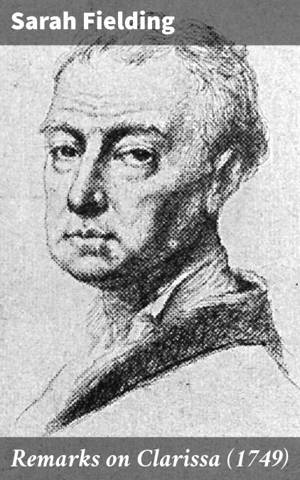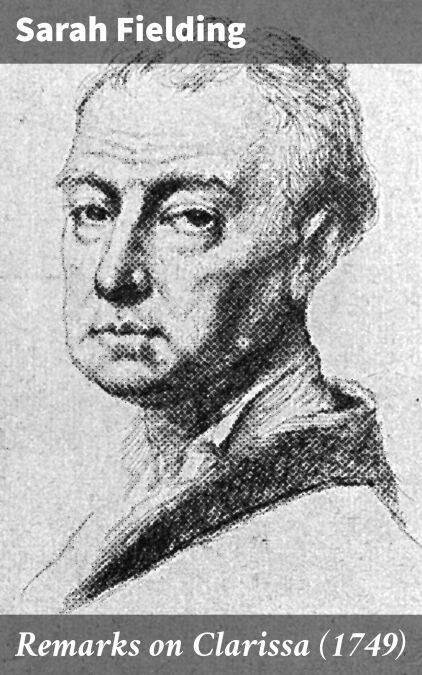
- Afhalen na 1 uur in een winkel met voorraad
- Gratis thuislevering in België vanaf € 30
- Ruim aanbod met 7 miljoen producten
- Afhalen na 1 uur in een winkel met voorraad
- Gratis thuislevering in België vanaf € 30
- Ruim aanbod met 7 miljoen producten
Zoeken
Remarks on Clarissa (1749) E-BOOK
Unveiling Gender Dynamics in 18th-Century Fiction Criticism
Sarah Fielding
E-book | Engels
€ 2,49
+ 2 punten
Omschrijving
Sarah Fielding's 'Remarks on Clarissa' (1749) serves as a critical analysis and commentary on Samuel Richardson's seminal work, 'Clarissa, or, The History of a Young Lady'. Fielding delves into the themes of gender, power dynamics, and morality explored in Richardson's novel, providing readers with a deeper understanding of the characters and their motivations. Her writing style is eloquent and persuasive, offering insightful interpretations of the novel's intricacies. As one of the earliest examples of literary criticism written by a woman, Fielding's 'Remarks on Clarissa' holds significant value in the literary context of the 18th century. Fielding's work sheds light on the gender norms and societal expectations prevalent during that time period, making it a valuable resource for scholars and enthusiasts of early English literature. I highly recommend 'Remarks on Clarissa' to readers interested in exploring the complexities of Richardson's work and gaining a deeper insight into the portrayal of women in 18th-century literature.
Specificaties
Betrokkenen
- Auteur(s):
- Uitgeverij:
Inhoud
- Aantal bladzijden:
- 150
- Taal:
- Engels
Eigenschappen
- Productcode (EAN):
- 4064066103637
- Verschijningsdatum:
- 15/03/2020
- Uitvoering:
- E-book
- Beveiligd met:
- Digital watermarking
- Formaat:
- ePub

Alleen bij Standaard Boekhandel
+ 2 punten op je klantenkaart van Standaard Boekhandel
Beoordelingen
We publiceren alleen reviews die voldoen aan de voorwaarden voor reviews. Bekijk onze voorwaarden voor reviews.











